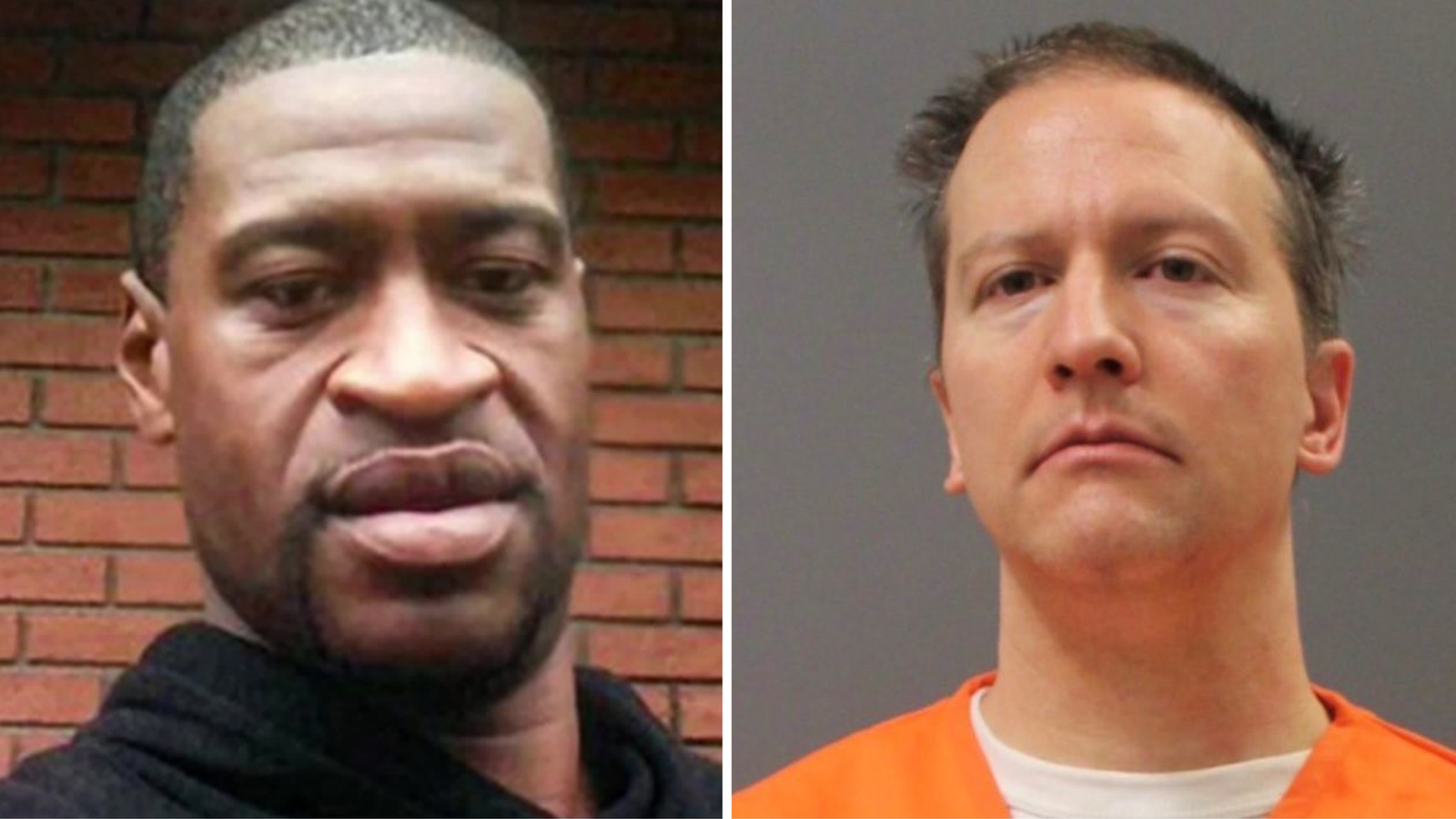A judge will today sentence the former Minneapolis police officer Derek Chauvin for the murder of George Floyd.
Mr Floyd‘s death in May last year sparked worldwide protests and re-energised the Black Lives Matter movement over police brutality and racial inequality.
Video recorded by a bystander showed Chauvin with his knee pressed on Mr Floyd’s neck as he lay handcuffed and restrained on the ground. He stayed there, his trial heard, for more than nine minutes.
Watch and follow live coverage of Chauvin’s sentencing on Sky News TV, the Sky News website and the app from 7.30pm.
Please use Chrome browser for a more accessible video player
A jury convicted Chauvin of second and third degree murder and manslaughter in April in a trial that was closely watched, in Minneapolis and far beyond, as a measure of whether the justice system could offer fairness to victims from the black community.
The verdict was welcomed by Mr Floyd’s family and activists but only a first step in the right direction towards a more equal society.
They will be watching just as closely as judge Peter Cahill hands down his sentence to Chauvin, the first white police officer in Minnesota ever to be convicted of killing a black man. He will be sentenced only for the most serious offence, second-degree murder.
Under Minnesota law, the maximum sentence for second-degree unintentional murder is 40 years in prison. But sentencing guidelines say someone with no previous convictions, like Chauvin, should face a jail term of between 10 and 15 years.
But last month Judge Cahill agreed with prosecutors that aggravating factors in Chauvin’s case warranted a tougher sentence. Those factors included Chauvin’s cruelty to Mr Floyd, his abuse of a position of authority and the presence of children at the scene.
The judge wrote that the prolonged use of restraint on Mr Floyd was “particularly egregious” as the victim expressed that he felt he was dying.
Legal experts say it makes a sentence between 20 and 30 years in prison the most likely outcome.
In his submission to court, Chauvin’s lawyer asked that he be sentenced to the time he has already served behind bars and probation. Eric Nelson says the court should note Chauvin’s years of service to the community and his cooperation during his trial.
Members of Mr Floyd’s family are expected to make victim impact statements to the court during the hearing.
Chauvin, who chose not to testify during his trial, also has the right to address the court before sentencing.
It is often used by defendants to show remorse to seek a lighter sentence but, as Chauvin is seeking a re-trial and possible appeal, he is unlikely to incriminate himself by accepting his guilt in open court.
The three other officers who encountered Mr Floyd that day are facing trial in August. All four officers are also facing federal charges of depriving Mr Floyd of his civil rights. Conviction on those charges can even lead to the imposition of a death sentence.
Officials in Minneapolis are not expecting major protests around the sentencing hearing. The barricades and security that ramped up during the trail are absent in the Twin Cities this week.
Fewer than a dozen police officers have been sentenced for an on-duty murder in the US in the last 15 years.
But those seeking justice for George Floyd believe the court can send a strong message that will resonate far beyond Minneapolis.






















